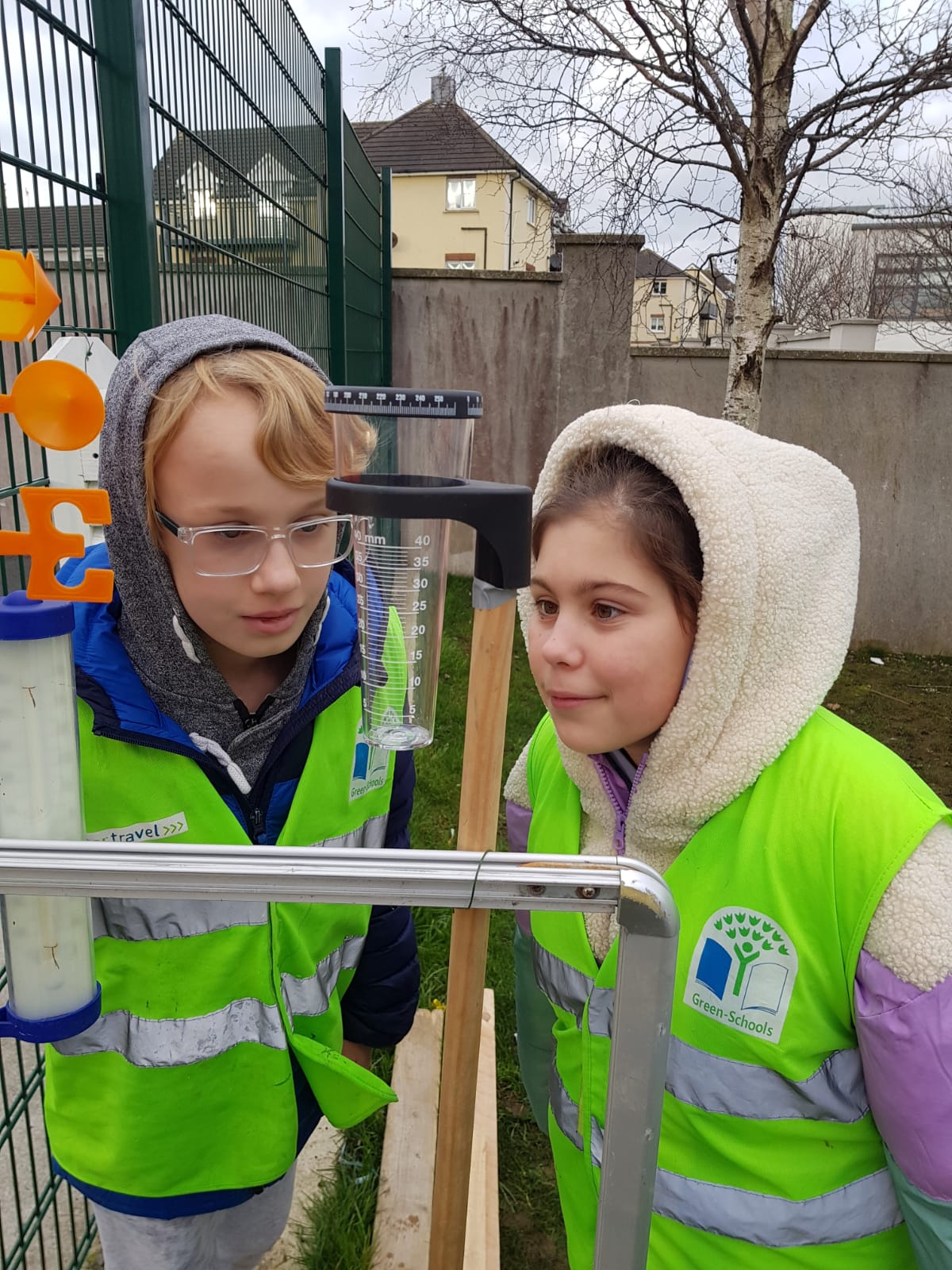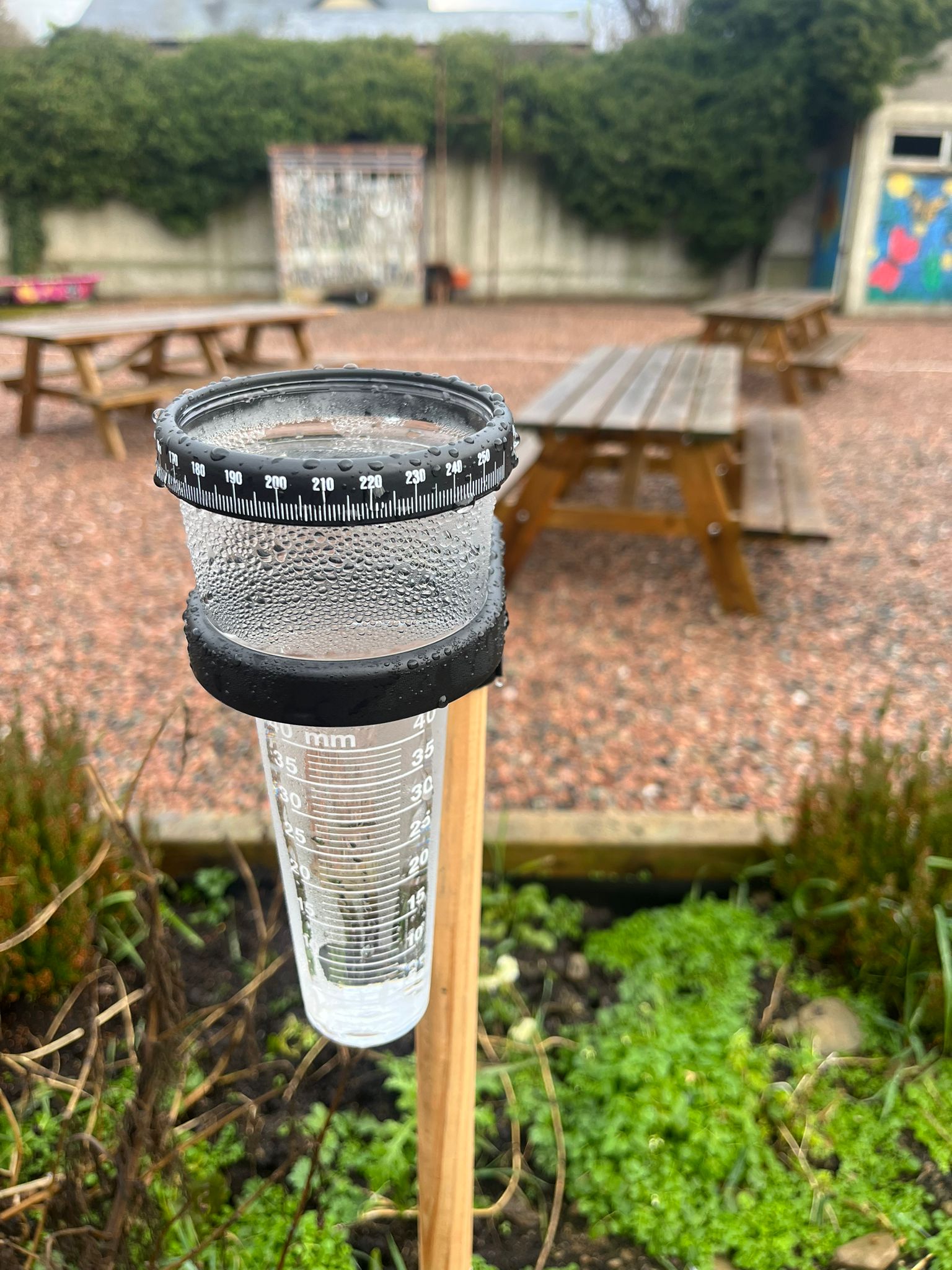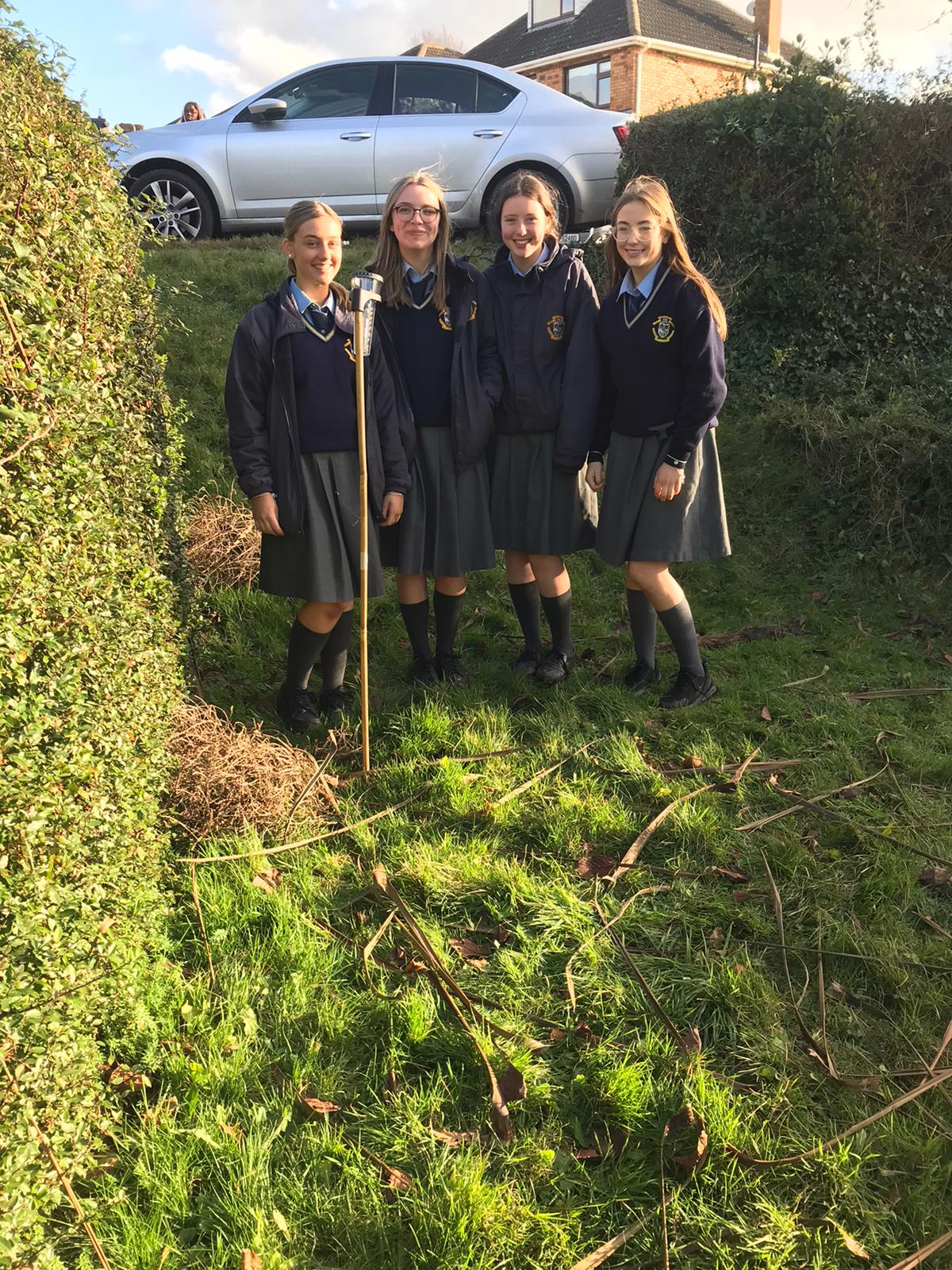Spongy School - Rainfall and Flood Resilience - Ireland
Climate Resilience - Rainfall and Flooding
How Spongy is your School?
Registration is now closed for the 2026 campaign!
If you missed the chance to register or have any questions regarding the campaign, please email globe@eeu.antaisce.org.
Rainfall Observation Dates: January 12th - February 6th 2026
- Measure and record rainfall daily during the monitoring period.
- Record the pH of the rainwater twice weekly.
- Map your schools grounds, looking at land cover types and rainfall patterns (Optional).
- Create a ‘Spongy School’ action plan to make your school more flood resilient (Optional).
- Take part in student sharing webinars (Optional).
- Submit your project to the Spongy Schools Competition, the GLOBE Ireland Annual Competition and GLOBE's International Virtual Science Symposium (Optional).
Campaign Participants in the Republic of Ireland will recieve by post:
- A rainfall gauge
-pH meausering strips
- Cable ties (for installing gauge)
- A classroom poster for recording your rainfall measurements
What are Nature Based Solutions?
- Teachers Guide: This is your one stop shop for everything related to the campaign. It contains information, instructions, all linked resources and activities. We highly reccomend that you read this before starting the campaign as it cotains everything you'll need to know!
- Classroom Presentations: 'Introduction to Rainfall & Flooding'. These PowerPoint presentations have been spilt into Primary School Level and Secondary School Level to better cater for different aged participants. They provide all the information students need to know about rainfall, flooding and climate resilience through nature-based solutions. These presentations are designed to be delivered alongside the campaign, so that students understand the importance of what they are monitoring.
- We have also included the classroom presentations from our 'Climate Resilience: Temperatures and Trees' campaign on 'What is Climate Change'. These are available for Early Primary, Senior Primary and Secondary Level students.
- Worksheets and Classroom Activities: From Colour-by-Number and wordsearches to calculating return intervals for flood events or mapping your school grounds, there is something in here for every student.
- Campaign Guide – this is your one stop shop for everything relating to the campaign – information, instructions, links to all resources and activities. Consider this your master document.
- Teacher Training Presentation – this is the presentation that was delivered at the teacher training webinar. It provides a general overview of the campaign[GU1] – find a recording of the teacher training webinar here.
- Introduction to Rainfall and Flooding Presentation – this presentation provides in-depth information about all of the topics that this campaign relates to. There are sections on the water cycle, soil, flooding, and nature based solutions. This presentation is designed to be delivered alongside the campaign.
- Rainfall and Flooding Classroom Guide: Discovery Level – this resource is designed to introduce your classroom to the Discovery Level of the Rainfall and Flooding Campaign, and walk them through the steps.
- Rainfall and Flooding Classroom Guide: Immersive Level – this resource walks you through all the activities offered in the Immersive Level.
As with all of our GLOBE Ireland campaigns, how much time you spend on it is largely up to you! This campaign requires a minimum of roughly 45 minutes to put up the rain gauge and then 10 minutes a day during the monitoring period. Beyond that, it is up to the teacher.
No! You can enter the date and time you want to report a rainfall reading for, so it is always possible to retroactively report your readings.
If you forget to read the gauge one day, it’s ok. Just read the gauge the next day- and when you report it on the GLOBE Observer change the *days accumulated rain to 2 or however many days it has been since you last checked.
No rain is equally important to report as lots of rain! If there is no rain in the rain gauge, report 0mm and if there is less than 1mm, report T for Trace. Tracking weeks without rain helps experts forecast drought and flood risk.
Read your rain gauge on a Monday as usual. When you open the Observer App to report the millimetres of rainfall, change the *days accumulated rain to 3. That way the scientists will know that the amount of rain in the rain gauge fell over 3 days.
No! You can enter the date and time you want to report a rainfall reading for, so it is always possible to retroactively report your readings.
Our resources are free to use by anyone, so teachers can use them and our protocols and work at your own pace and on your own timeline. You will however need to acquire the necessary equipment yourself. If you are in the Republic of Ireland, contact us to let us know that you are interested. We will see if we can assist you in any way.
The GLOBE Ireland team is always happy to hear from you, the best way to get in contact is to email globe@eeu.antiasce.org. YOu can also find us on social media.
As with all of the other GLOBE Ireand campaigns, all of our resources are freely available online for anybody to use. Our equipment packs are free as well but they are only available to schools in the Republic of Ireland.








